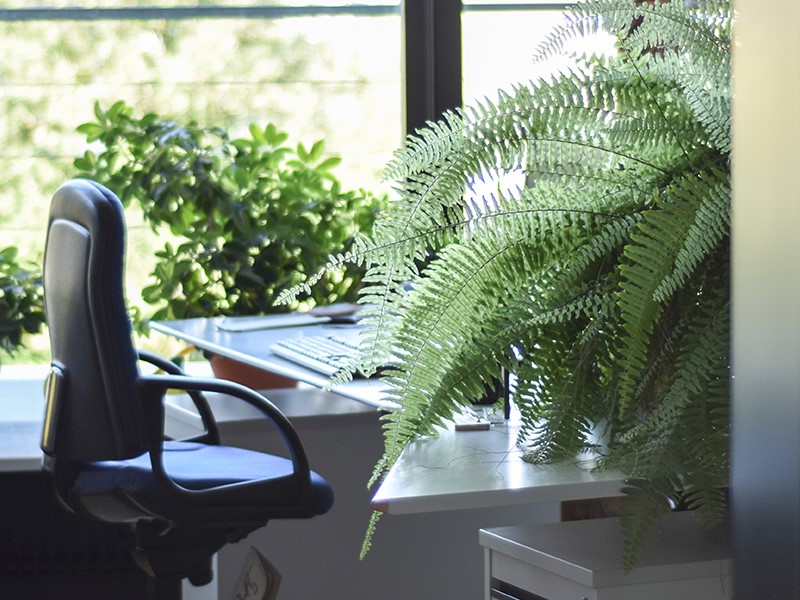Smart glass is an innovative technology that is transforming the way we design and interact with our built environment. Smart glass, also known as switchable glass, is a type of glass that can change its transparency from opaque to transparent, or vice versa, at the push of a button or through automated sensors. This technology has numerous applications in architecture and design, but one area where it is particularly effective is in biophilic design.
Biophilic design is a design approach that incorporates nature into the built environment. It is based on the idea that humans have an innate connection with nature and that exposure to natural elements can improve our health, well-being, and productivity. Biophilic design seeks to create spaces that mimic natural environments, incorporating features such as natural light, plants, and natural materials. Smart glass is a technology that can help achieve these design goals by providing a way to control natural light and views, while also offering privacy and flexibility.

One of the key benefits of smart glass in biophilic design is its ability to control natural light. Natural light is a critical element of biophilic design, as it has been shown to improve productivity, mood, and overall well-being. Smart glass allows designers to control the amount of natural light that enters a space, without sacrificing views or privacy. This is particularly important in spaces where direct sunlight can be problematic, such as conference rooms or medical facilities. Additionally, smart glass can be used to reduce glare and heat gain, while still allowing natural light to filter through.
Smart glass can also contribute to biophilic design by providing a way to connect indoor and outdoor spaces. Many biophilic design principles focus on blurring the line between indoor and outdoor environments, creating a seamless transition between the two. Unlike traditional blinds, curtains or shades, smart glass can be used to create sweeping, uninterrupted views of the outdoors, allowing occupants to feel more connected to nature. By providing the ability to switch from opaque to transparent, smart glass can also create a sense of openness and spaciousness, even in smaller spaces.
Another way that smart glass contributes to biophilic design is through its ability to create privacy while still allowing natural light to enter a space. Privacy is an important consideration in many building types, but it can be difficult to achieve without sacrificing natural light or views. Smart glass can be used to create private spaces that are still connected to the outdoors, providing a sense of tranquility and privacy without feeling closed off from the rest of the world. This is especially useful in hard-to-reach spaces such as skylights.
In conclusion, smart glass is an innovative technology that has the potential to transform biophilic design. By providing a way to control natural light, connect indoor and outdoor spaces, and create privacy without sacrificing views, smart glass can help designers create spaces that are more in tune with nature. As the importance of biophilic design continues to grow, it is
likely that smart glass will play an increasingly important role in creating healthy and sustainable built environments.
Want to learn more about Smart Glass or receive a quote? Contact the Smart Glass experts at Gauzy today.








